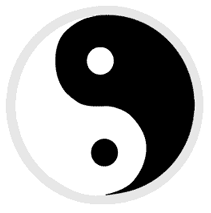



AlternativeMedicine
Acupuncture, Traditional Chinese Medicine, Herbs
New York Acupuncture Healthcare

Chinese Herbs
Chinese herbal medicine is a healing art that has progressed for several thousand years. Chinese herbalists spend lifetimes observing and cataloging the nature and medicinal effects of thousands of individual plant, animal, and mineral substances whose effectiveness has now been substantiated by Western research.

Image from silverleafherbs.com
Herbs contain many active constituents that help balance their overall effect — which tends to make them safer than drugs, but often more powerful. When isolated, the apparently active main ingredient may not be as effective or as safe as when issued in balanced combination with other herbs. Herbs can vary in strength depending upon the methods of processing, time and area of cultivation, and the plant genus. For instance, not all ginsengs are alike. They vary greatly depending upon whether they are Chinese, Korean, American, or Siberian.
Approximately 30 to 40 percent of modern drugs have herbal origins. Vincristine comes from the African periwinkle and treats childhood leukemia. Ephedrine comes from Chinese Ma Huang and treats asthma, as well as life-threatening allergic reactions. Aspirin comes from white willow bark which was used by the American Indian. Taxol is perhaps the most promising anti-cancer drug to date, and is found in the bark of the yew tree. Unfortunately, drugs are so powerful that they often have severe side effects. Herbal medicine is often just as effective, yet generally gentler.
Most Traditional Chinese Medicine doctors have had extensive training in the use of herbal medicine. While some minor conditions are self-treatable, it is best to consult with someone trained in the refined use of herbs rather than administering them for any chronic condition or for any prolonged period of time.